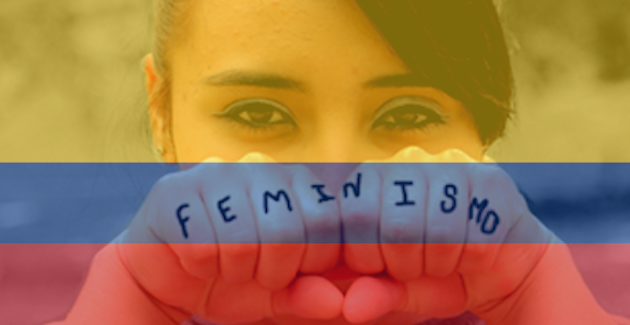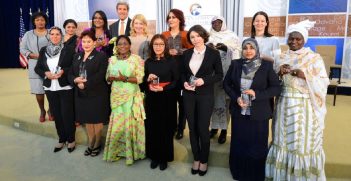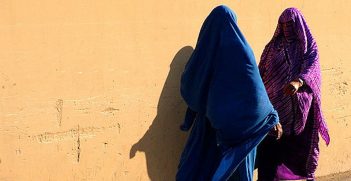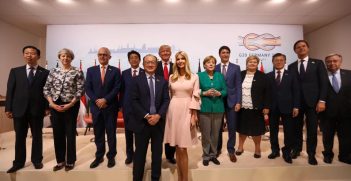Insurgent Feminism and Colombia's New Peace

The signing of the Colombian peace agreement in November 2016 brought an end to the longest-running armed conflict in the Western hemisphere. An important factor in the new peace is the use of strategies to address deep-seated gender inequalities.
On 27 June 2017, the Revolutionary Armed Forces of Colombia-People’s Army (Fuerzas Armadas Revolucionarias de Colombia- Ejército del Pueblo, the FARC-EP) formally completed disarmament and ceased its existence as an armed group. Coinciding with the ongoing implementation of Colombia’s peace agreement and the reincorporation process of former FARC-EP combatants, the FARC-EP will also now work towards forming its political party.
As part of the ARC Linkage global study, ‘Toward Inclusive Peace’, our research team recently visited Colombia to investigate how the 2016 peace agreement between the Colombian government and the FARC-EP is being implemented and its effect on women’s participation in the post-conflict society. The group had the opportunity to learn more about the work of FARC-EP’s Mujeres Farianas women’s organisation and the incorporation of ‘insurgent feminism’ into the political strategy of the new FARC-EP party. Women have traditionally played an important role within the FARC-EP organisation and it was clear that they will play an equally imperative role in its shift towards democratic politics.
One of the defining features of the Colombian 2016 peace agreement is its gender-based approach, with key provisions aimed at providing strategies to end the 53-year-old conflict and address deep-seated gendered inequalities in conflict-affected areas. While the agreement has been internationally applauded for specific provisions that benefit women and that promote women’s participation in post-conflict and transitional justice institutions, there are key challenges to their implementation in the context of the broader peace agreement.
Despite the willingness of the Colombian government to implement these ground-breaking provisions, Colombians expressed concerns that capacity, capability and the available funding may hinder their implementation. This issue is apparent in the way the peace agreement provisions will be implemented: the provisions will be divided up according to their relevance to particular ministries or departments, which will in turn be responsible for the implementation. While some agencies have specific action plans and strategies for how to do this, some Colombians raised concerns that the agencies did not have the capability, know-how or adequate funding to fully realise the provisions.
FARC-EP Commander Victoria Sandino is a member of FARC-EP’s Peace Delegation, the Gender Sub-Commission, and the Commission for Monitoring and Verification of the Peace Agreement (CSIVI). CSIVI is a consultative body responsible for following up the fulfilment of the agreement which includes ensuring that the gender approach is incorporated into each of the agreement’s implementation points and that there is consistency in terms of gender equality and women’s rights.
Sandino outlined the FARC-EP’s specific measures to help put in place the gender provisions, including creating a ‘technical table for gender’ as an advisory body. The plan is to invite different departments involved in implementing the gender provisions to discuss what the gender-based approach should be and the practicalities of making it a reality . The group complements the Special Instance for Gender, a group of seven women responsible for following up on the gender approach. The special instance group includes three women from territorial organisations, one from a victims’ organisation, two from national organisations, and one representative of Colombia’s LGBTI organisations.
Insurgent feminism
‘Insurgent feminism’ is the FARC-EP’s thesis for the women and gender approach of the new political party. Our Australian research group heard about it first hand at a FARC-EP workshop last month. This form of feminism is based on the achievement and restoration of women’s rights in Colombian society, which, according to FARC-EP, can only come about as a result of profound and revolutionary transformation, and can only be achieved through a combined struggle of women and men. ‘Insurgent feminism’ for the FARC-EP is emancipatory in that it involves collective liberation, constituted from the necessity of wealth redistribution, and framed within the broader class struggle. It understands that transformation occurs in the redistribution of wealth and that there is no liberation of women without the elimination of class domination and “the full recognition of women’s rights and their historical and revolutionary role”.
Insurgent feminism seeks to rise against not only the oppression of women, but also all kinds of oppression, and seeks major transformations in favour of the vast majority that have been historically excluded. The thesis states that although women in the FARC-EP are subject to the equal conditions, opportunities and capacities as men, “the anti-patriarchal character of our party must be reflected in empowerment…and in the mass participation of women in all new levels of the new party.” The gender department in the FARC-EP will seek to accompany the agendas of women’s organisations and marginalised sectors of the country, to “strengthen their struggles and demands, contributing to the social mobilisation for the collective human rights of women.”
During the research in Colombia, both former combatants and active FARC-EP members reiterated that equality between men and women has always been promoted in FARC ideology throughout the FARC-EP. For example, a group of former combatants explained, “women were not discriminated against within FARC-EP”. They said that both men and women were equally assigned roles such as cooking and cleaning, and that “if a man went to the front line, a woman did too”. Yet, when questioned more about this perception of ‘equality’, a group of former female combatants admitted that in fact this equal division of responsibilities was difficult as in many cases, as “women are not as strong as men”.
The group explained that courses such as learning to dig trenches and bunkers for protection and logging trees were difficult because of the differences in strength, but you “learn how do to it and get used to it”. One participant explained that she was tricked into joining the FARC when she was 11 years old, being told she was “only going to be given a job for a week.” Another explained that if you became pregnant, “abortion is something you expected”.
It was clear that some ex-female combatants who chose to demobilise individually, rather than collectively with FARC-EP, no longer saw themselves as Mujeres Farianas. They explained that the Mujeres Farianas ideology taught them about partnership and to “love each other” as they were fighting for the same outcomes. However, they said they were no longer thinking about the FARC-EP’s political project of “taking power”, but rather looking forward to starting a new life as Colombian citizens integrated into society.
Some active FARC-EP members disclosed that one of their biggest concerns was that after leaving the organisation that promoted equality between women and men, was that they will have to become housewives and “stay at home to look after the children”. As a result, current FARC-EP development strategies focus on providing women opportunities to work and women’s rights organisations, such as Coordinación Nacional de Mujeres de la Marcha Patriótica (CONAMU) and La Liga de las Mujeres, working alongside the Mujeres Farianas, have been creating strategies promoting empowerment in Colombia’s rural communities.
Although there are concerns surrounding the implementation of the Colombian peace agreement, the gender-based approach has provided a strong framework for women’s empowerment and political participation in Colombia’s post-conflict phase. Many non-FARC-EP affiliated participants have praised the FARC-EP’s efforts in strongly advocating for the maintenance of the gender provisions through CSIVI. The remarkable peace agreement after one of the longest conflicts in the world marks a settlement between the Colombian government and the FARC-EP. It sets the stage for major structural transformation throughout the country, an opportunity that the Mujeres Farianas intends to take up to advance the new revolutionary struggle: emancipation through political participation.
Alexandra Phelan is a PhD candidate working at Monash University’s Gender, Peace and Security Centre on the Colombian case for the Australian Research Council Linkage Project, ‘Towards Inclusive Peace: Mapping Gender Provisions of Peace Agreements’.
This article is published under a Creative Commons Licence and may be republished with attribution.





